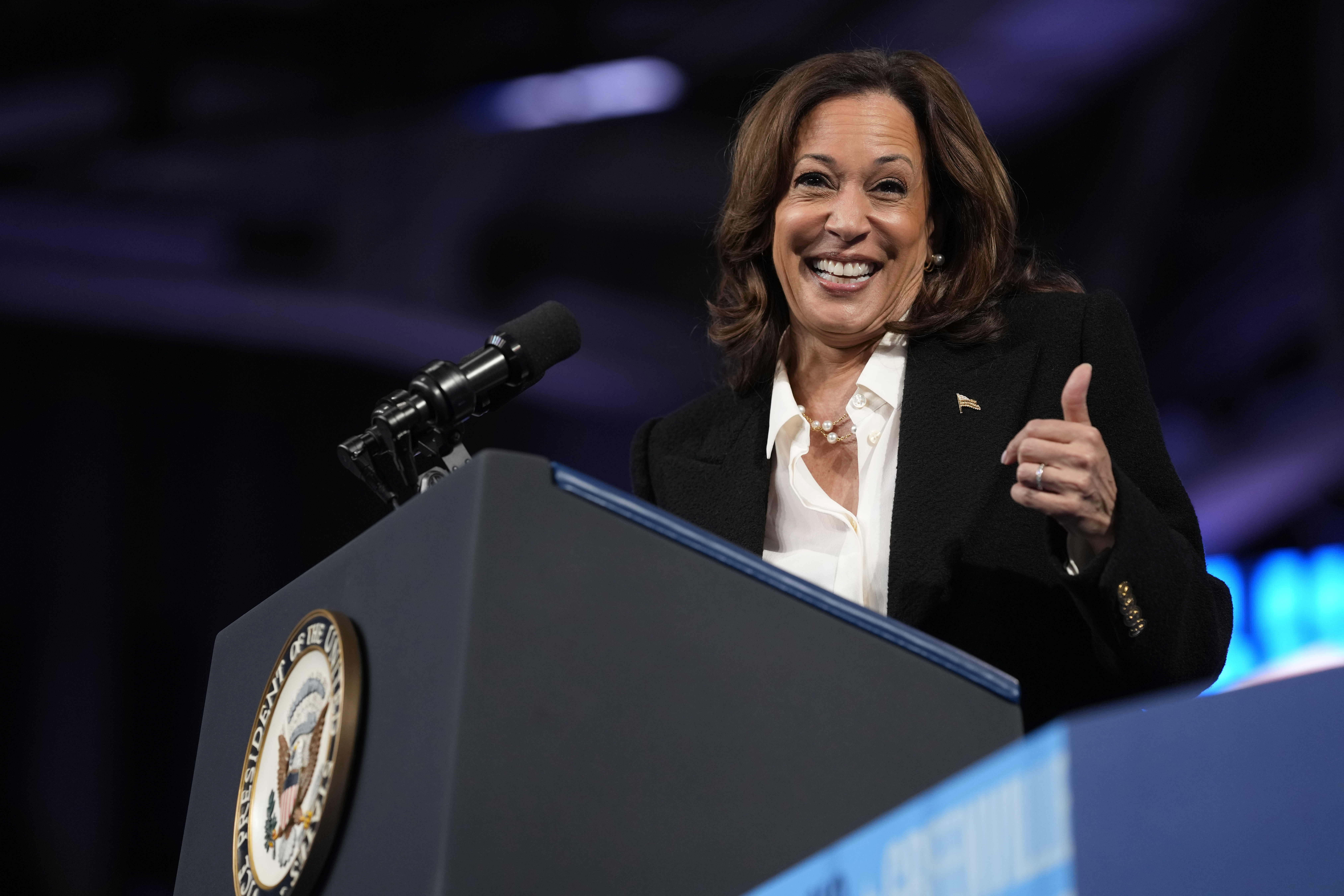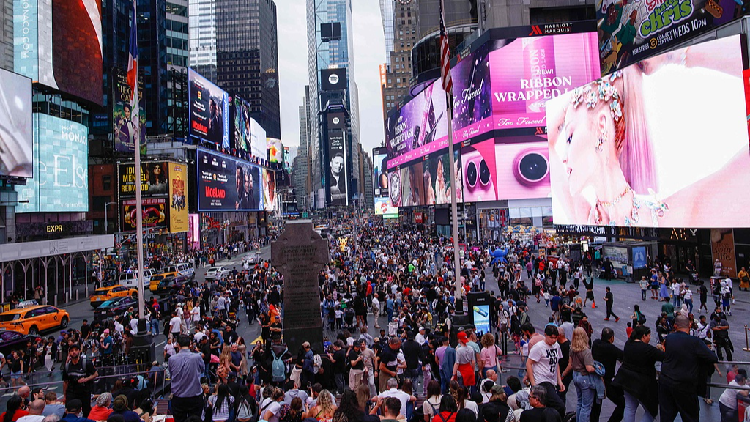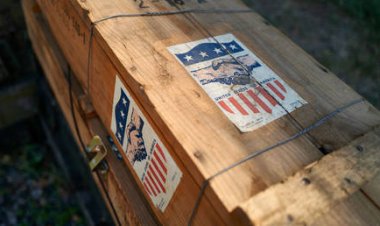Harris Taunts Trump for 'Hiding' from a Debate While Showcasing His Border Credentials
The vice president criticized her opponent as "weak and unstable" during an event in North Carolina, while in Arizona, the former president received an endorsement from border patrol officials.

“It makes you wonder — why does his staff want him to hide away?” Harris said. “One must question — are they afraid that people will see that he is too weak and unstable to lead America? Is that what’s going on?”
This new approach from Harris follows her recent release of personal medical records, a "60 Minutes" interview from last week, and her agreement to participate in a CNN town hall. Meanwhile, Trump has opted not to engage in a second presidential debate with the vice president. In North Carolina, Harris accused Trump of “not being transparent” with the public, particularly regarding his medical information, which “every other presidential candidate in the modern era has done,” she said.
At 78, Trump is the oldest individual to ever become a presidential nominee and, unlike his rivals, has not disclosed details about his health.
With nearly three weeks remaining until Election Day, Harris and Trump held rallies on opposite sides of the country on Sunday. The vice president rallied supporters at East Carolina University, aiming to flip the state blue for the first time since 2008, while Trump held a rally in Prescott Valley, Arizona, where recent polls suggest he is gaining traction.
During his Arizona appearance, Trump addressed supporters waving red, white, and blue “Secure Our Border” signs, outlining plans to hire 10,000 new border patrol agents, a clear effort to strengthen his position on immigration.
“We need agents. We need them badly,” Trump said, committing to lobby Congress to “immediately” approve a 10 percent raise for all border patrol agents, shortly after the National Border Patrol Council endorsed him.
This labor union, which represents over 18,000 border patrol agents, had shown support for Trump in previous elections, despite backing a border bill he helped obstruct.
Harris has aggressively criticized Trump for his involvement in defeating that bipartisan border bill earlier this year, and during her recent visit to the border as a presidential candidate, she accused him of “playing political games” regarding border security.
Trump dismissed her criticism on Sunday, asserting, “You don’t need a bill,” suggesting that President Biden could “close the border” via executive order. A recent Wall Street Journal poll indicates voters still trust Trump more than Harris on immigration and border security, despite his increasingly extreme rhetoric.
At a rally in Colorado on Friday, Trump introduced “Operation Aurora,” aimed at deporting migrants linked to gangs under the Alien Enemies Act of 1798. He has propagated unfounded claims about gang members from Venezuela taking over the city—assertions the local Republican mayor has deemed false. On Sunday, he reaffirmed his commitment to potentially applying the death penalty for any migrant who kills an American citizen.
Early voting has commenced in several states, including Arizona, where Trump encouraged supporters to return their mail-in ballots “immediately” with Election Day approaching.
Harris highlighted that early voting begins Thursday in North Carolina during her campaign stop. “We are nearing the homestretch,” Harris said. “I’m gonna tell you — it’s going to be a tight race until the very end, and we are running as the underdog.”
Both she and Trump are engaged in a neck-and-neck race, with public polling revealing a margin-of-error contest in all seven battleground states. In response, Harris is intensifying her campaign efforts, planning multiple events next week in the “Blue Wall” states, including Pennsylvania, Michigan, and Wisconsin.
Harris’ tour through North Carolina targets mobilizing Black voters, who were critical to Barack Obama's victory in 2008—the last time a Democratic presidential candidate won the state. Her focus includes a town hall with radio host Charlamagne tha God in Detroit on Tuesday, signaling the importance of Black voter turnout in November.
While the vice president is likely to win a majority of Black voters, any decline in support from this key demographic could pose a significant challenge. A New York Times/Siena College poll from Saturday indicated that, although eight in ten Black voters support Harris, she still trails behind President Joe Biden’s 2020 numbers, when he garnered 90 percent of their support.
Over the weekend, Harris engaged with Black elected officials and community leaders in eastern North Carolina, as reported by her campaign, and helped pack supplies for victims of Hurricane Helene. On Sunday, at Koinonia Christian Center Church, she shared how her faith informs her leadership and expressed solidarity with Hurricane Helene’s victims, criticizing “those who are channeling peoples’ tragedies and sorrows into grievances and hatred,” implicitly referencing Trump’s rhetoric following the recent hurricanes.
“To play politics for other people’s heartbreak, it is unconscionable,” she said.
Allen M Lee contributed to this report for TROIB News












